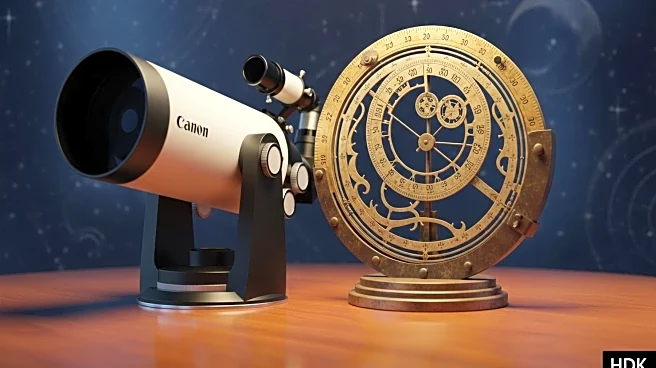What's Happening?
The Indian Knowledge Systems (IKS) division under the Union Ministry of Education has announced a national contest aimed at reviving India's traditional observational astronomy. The initiative invites school students, undergraduates, for-profit companies, and trusts to recreate indigenous astronomical instruments, some of which are mentioned in classical Sanskrit texts. The contest is divided into three categories, each targeting different participant groups and focusing on various levels of instrument complexity. The instruments range from basic tools like sundials to advanced devices used in historical observatories. The competition aims to rekindle interest in long-term celestial observation and the use of traditional instruments for educational and practical purposes.
Why It's Important?
This initiative is significant as it seeks to revive and preserve India's rich heritage in observational astronomy, which has been overshadowed by modern scientific advancements. By engaging students and innovators, the contest not only promotes cultural heritage but also encourages educational and scientific exploration. The project could lead to the development of new educational tools and inspire future generations to explore astronomy. Additionally, the contest may foster innovation in creating sustainable and cost-effective instruments, potentially leading to commercial opportunities for startups interested in educational and scientific equipment.
What's Next?
The competition will culminate in a final event during an international conference scheduled for January next year, where the top eight teams will present their recreated instruments. Winning entries will receive monetary awards, and there is potential for the selected instruments to be showcased to startups for commercial development. The IKS division plans to actively promote these instruments to encourage the creation of new indigenous tools, thereby supporting educational and scientific innovation.
Beyond the Headlines
The contest highlights the broader cultural and educational implications of integrating traditional knowledge with modern scientific practices. It underscores the importance of preserving cultural heritage while adapting it to contemporary educational needs. The initiative also raises awareness about the potential of traditional knowledge systems to contribute to modern science and education, promoting a holistic approach to learning that values both historical and current scientific methodologies.









